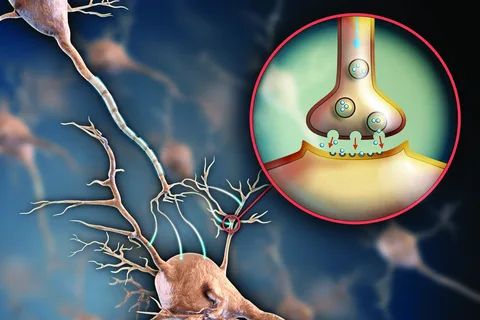The Science Behind Nootropics and Serotonin

Introduction
Nootropics, often referred to as “smart drugs” or cognitive enhancers, have garnered significant attention for their potential to boost brain function, enhance memory, and improve mental performance. Central to their effects is the interaction with neurotransmitters, including serotonin. This guide explores the science behind nootropics and their relationship with serotonin, shedding light on how these substances might influence cognitive health and mood.
Understanding Nootropics
What Are Nootropics?
Nootropics are substances that aim to enhance cognitive function, including memory, creativity, focus, and overall mental performance. They can range from natural compounds and dietary supplements to synthetic drugs. While some nootropics are well-researched and have clear efficacy, others are less understood and may carry risks.
Types of Nootropics
- Natural Nootropics: These include herbs and compounds such as Ginkgo Biloba, Bacopa Monnieri, and Rhodiola Rosea, which have been traditionally used to support brain health.
- Racetam Family: Synthetic compounds like Piracetam, Aniracetam, and Oxiracetam fall into this category. They are designed to enhance cognitive function and are often used in clinical research.
- Cholinergics: These nootropics, including Alpha-GPC and Huperzine A, focus on boosting acetylcholine levels, a neurotransmitter crucial for learning and memory.
- Stimulants: Caffeine and Modafinil are examples of stimulants used as nootropics. They can increase alertness and focus but may also come with side effects.
How Nootropics Work
Nootropics can influence cognitive function through various mechanisms:
- Neurotransmitter Modulation: By altering levels of neurotransmitters like acetylcholine, dopamine, and serotonin, nootropics can enhance or modulate brain activity.
- Neuroprotection: Some nootropics may protect the brain from damage due to oxidative stress or neurodegeneration.
- Brain Plasticity: Certain compounds can support synaptic plasticity, which is essential for learning and memory formation.
The Role of Serotonin
What Is Serotonin?
Serotonin is a neurotransmitter that plays a vital role in regulating mood, anxiety, and overall mental well-being. It is produced in the brain and intestines, affecting various physiological processes.
Serotonin’s Functions
- Mood Regulation: Serotonin is crucial for maintaining mood balance. Low levels are often associated with depression and anxiety.
- Sleep: It influences sleep patterns by affecting melatonin levels, which regulate the sleep-wake cycle.
- Appetite: Serotonin helps control appetite and digestion, affecting eating behaviors and metabolic processes.
How Serotonin Is Produced
Serotonin is synthesized from the amino acid tryptophan through a biochemical pathway involving several enzymes. Adequate levels of tryptophan and other cofactors are essential for optimal serotonin production.
Nootropics and Serotonin Interaction
Mechanisms of Interaction
Nootropics can affect serotonin levels and its activity through various mechanisms:
- Serotonin Reuptake Inhibition: Some nootropics may inhibit the reuptake of serotonin, increasing its availability in the brain. This can enhance mood and cognitive function.
- Serotonin Receptor Modulation: Certain nootropics might interact with serotonin receptors, altering their activity and influencing mood and cognition.
- Neuroplasticity Support: By supporting brain plasticity, some nootropics may indirectly affect serotonin systems, contributing to cognitive and mood improvements.
Nootropics That Influence Serotonin
- 5-HTP (5-Hydroxytryptophan): A direct precursor to serotonin, 5-HTP can boost serotonin levels, potentially improving mood and cognitive function.
- L-Theanine: Found in tea, L-Theanine can increase serotonin and dopamine levels, promoting relaxation and focus.
- Rhodiola Rosea: This adaptogen may help balance serotonin levels, reducing stress and enhancing cognitive performance.
- St. John’s Wort: Known for its antidepressant effects, St. John’s Wort can increase serotonin levels and is often used to manage mood disorders.
Benefits of Nootropics on Cognitive Function and Mood
Cognitive Enhancement
Nootropics that affect serotonin can improve cognitive functions such as memory, attention, and mental clarity by stabilizing mood and reducing anxiety. This stabilization can lead to better focus and information processing.
Mood Regulation
By influencing serotonin levels, certain nootropics can alleviate symptoms of depression and anxiety. Improved mood and reduced stress can enhance overall cognitive function and productivity.
Neuroprotection
Some nootropics provide neuroprotective benefits by supporting serotonin systems, which can help protect the brain from oxidative stress and neurodegenerative conditions.
Potential Risks and Side Effects
Side Effects of Nootropics
While nootropics can offer cognitive and mood benefits, they may also have potential side effects:
- Serotonin Syndrome: Excessive increases in serotonin levels can lead to serotonin syndrome, a potentially dangerous condition characterized by agitation, confusion, and high blood pressure.
- Dependence: Some nootropics, especially stimulants, can lead to dependence or tolerance with prolonged use.
- Interactions: Nootropics may interact with other medications, particularly those affecting serotonin, leading to adverse effects.
Safety Considerations
- Dosage: Proper dosage is crucial to minimize side effects and ensure effectiveness. It’s important to follow recommended guidelines and consult with a healthcare provider.
- Quality and Purity: Ensure that nootropic supplements are from reputable sources to avoid contamination or substandard products.
FAQs
How do nootropics enhance cognitive function?
Nootropics enhance cognitive function by influencing neurotransmitters, improving brain plasticity, and providing neuroprotection. They can increase alertness, focus, and memory.
What role does serotonin play in mood regulation?
Serotonin is crucial for mood regulation, influencing feelings of well-being and happiness. Low levels are often associated with depression and anxiety.
Can nootropics help with depression?
Some nootropics that affect serotonin levels, such as 5-HTP and St. John’s Wort, may help alleviate symptoms of depression by boosting serotonin levels.
Are there natural nootropics that affect serotonin?
Yes, natural nootropics like L-Theanine, Rhodiola Rosea, and St. John’s Wort can influence serotonin levels and potentially improve mood and cognitive function.
What is serotonin syndrome?
Serotonin syndrome is a condition caused by excessive serotonin levels, leading to symptoms such as agitation, confusion, and high blood pressure. It can be serious and requires medical attention.
How do nootropics interact with serotonin?
Nootropics can interact with serotonin by increasing its levels, inhibiting its reuptake, or modulating serotonin receptors, affecting mood and cognitive function.
Are there risks associated with using nootropics?
Yes, risks include potential side effects like serotonin syndrome, dependence, and interactions with other medications. Proper dosage and quality control are important.
Can nootropics improve sleep quality?
Some nootropics, like L-Theanine, may improve sleep quality by influencing serotonin and melatonin levels, promoting relaxation and better sleep patterns.
How should I choose a nootropic?
Choose nootropics based on your specific needs and health conditions. Consult with a healthcare provider to ensure safety and effectiveness, and consider factors like quality and dosage.
Are there any long-term effects of using nootropics?
Long-term effects of nootropics vary and can include potential side effects or interactions. Ongoing research is needed to fully understand their long-term impact on cognitive health and mood.
Conclusion
The science behind nootropics and serotonin reveals a complex interplay that influences cognitive function and mood. While nootropics offer promising benefits for enhancing mental performance and emotional well-being, it is essential to approach their use with caution. Understanding the mechanisms of action, potential benefits, and risks can help individuals make informed decisions about incorporating nootropics into their wellness regimen. As always, consulting with a healthcare provider is crucial to ensure safe and effective use.
- Nefertiti Neck Lift Treatment Near Thorpe, Surrey - June 1, 2025
- Light Eyes Ultra – Dark Circles Treatment Near Weybridge, Surrey - May 31, 2025
- Retinol Peel Near Brooklands, Surrey - May 30, 2025
